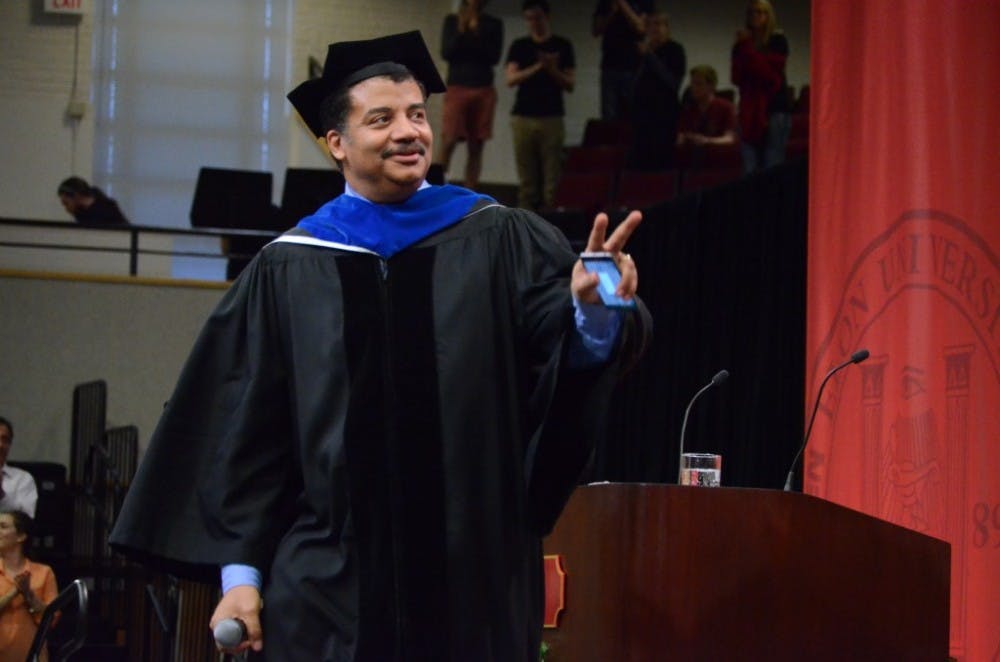Pacing around the stage, all but antsy to get started, Neil deGrasse Tyson raised his voice a little bit. So he apologized.
“I’m just really excited about this,” Tyson said.
Tyson, the acclaimed astrophysicist and author, tried to inspire greater enthusiasm for the possibilities in science in headlining Elon University’s Spring Convocation Thursday. The speech, “The Sky Is Not the Limit,” addressed a number of scientific topics, ranging from subjective and objective truths to genetic ancestries, while peppering in jokes to keep the mood light.
Tyson, the executive editor and on-camera narrator for the four-time Emmy Award winning show “Cosmos: A Spacetime Odyssey,” took his shoe off to disprove an Aristotle theory, sent a tweet and had to silence his phone during his time on stage. He spoke for more than an hour, although he began by saying three would be easy.
Tyson emphasized the importance of science, while downplaying the weight of grades.
“No one will look at my verbal SATs and say, ‘He’ll go far,’” Tyson said.
More definitively, Tyson sees something in science that he believes others should, too. He defined the role of science being to provide objective truths so governance can unfold.
“The good thing about science is that it’s true whether or not you believe in it,” Tyson said. “To say that properly requires more sentences than that. That’s the Twitter version of a finer truth I want to share with you.”
Society is too focused on personal truths nowadays, Tyson said, noting that identifying as a political party “can’t be healthy for an informed nation in the long run.”
To Tyson, the objective truths matter most, the ones that apply to everyone.
“There’s nothing you can say about the natural world that will offend a scientist because there are no feelings invested in an objective truth,” Tyson said. “I dream of a world where people are enlightened by objective truths rather than offended by them.”
But, Tyson won’t be upset if you disagree — it leads to progress, he said.
“We live in a pluralistic society,” Tyson said. “That’s a good thing.”
Tyson isn’t interested in learning about his genetic ancestry, simply because he doesn’t care. Ancestry can be traced so far back, Tyson said, that he’s related to Albert Einstein and Isaac Newton somehow.
Instead, Tyson doesn’t want to limit himself and draw lines about what can be accomplished. He used a member of the audience to demonstrate how genetics are similar in all humans.
“We are all genetically linked,” Tyson said. “When I ask who am I? I’m the sum of us all. So no one is saying what I can’t become, because it doesn’t have to be in my genetic language.”
Tyson spoke a lot about Twitter and some of his more controversial tweets, which drew some amusement from the audience. He even tweeted about religious freedom laws toward the end of his speech.
“We have very many scientists out there, but very few who communicate to the world,” said Benjamin Evans, associate professor of physics, who introduced Tyson.


